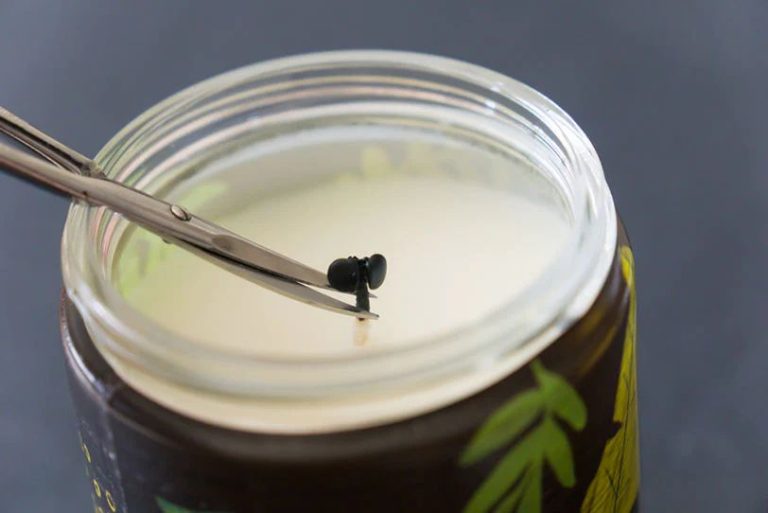Does Lighting A Candle Keep Bugs Away?
Bugs can be a major nuisance when enjoying the outdoors or relaxing at home. Their bites and constant presence can really put a damper on summer activities. Many people look for ways to repel biting insects without relying solely on harsh chemical bug sprays. One popular home remedy is to light candles, which are thought to naturally keep bugs at bay.
But is there any truth to this claim? Can the simple act of lighting a candle actually repel mosquitoes, flies, and other pests? This article will examine the evidence behind using candles as bug repellents. We’ll look at the science of how repellents work, what ingredients are present in candles, and whether they realistically create an effective bug-free zone. Other natural options for avoiding bugs will also be covered. The goal is to provide research-backed information to determine if candles live up to their reputation for repelling insects.
Popular Belief About Candles and Bugs
Many believe that burning candles helps repel bugs like mosquitoes and other flying insects from an area. This belief primarily stems from the use of citronella candles, which have strong ties to natural bug repellents. The scent of citronella oil has been used for over 50 years as an ingredient in bug sprays and lotions (Lemelson Center, 2014). This led to the creation of citronella candles in the 1990s, marketed as a way to repel bugs when enjoying outdoor living spaces.

The popularity of citronella candles has perpetuated the notion that any candle can help keep bugs at bay. While there is some evidence that citronella candles may repel mosquitoes, research does not support the idea that regular candles have the same effect. Still, many rely on candles during outdoor activities in hopes of preventing bug bites without chemicals.
Science Behind Bug Repellents
Most insect repellents rely on either chemical ingredients like DEET (N,N-diethyl-meta-toluamide) or natural oils like citronella, lemon eucalyptus, and peppermint to deter bugs like mosquitoes and ticks (REI, 2022). These ingredients are thought to work in a few key ways:
DEET repels insects by blocking receptors that detect carbon dioxide and lactic acid, which are attractive to mosquitoes (Academic.oup.com, 1985). Natural oils may mask human scents or overwhelm insect scent receptors with strong odors that repel them (Lastinghealth.com, 2023).
Some research indicates that DEET and other active ingredients also function as contact irritants, discouraging insects from landing once they detect the chemicals on skin (Academic.oup.com, 1985). The repellents create a vapor barrier or force field making the host less appealing for blood-seeking bugs.
Overall, scientists believe insect repellents create conditions that basically “jam” insect senses and deter them from recognizing humans as appealing hosts to bite and feed on. The chemicals disrupt the insect’s normal host-seeking behaviors.
Do Candles Contain Repellent Ingredients?
The main ingredients in most candles do not have inherent bug repelling properties. Beeswax, soy wax, and paraffin wax are commonly used candle waxes, but none contain compounds that repel insects [1]. Additionally, fragrance oils added for scent lack repellent effects. The oils used in candles for fragrance are chosen for their aroma rather than bug deterring abilities.
While some candles may claim to repel bugs, the waxes and fragrance oils alone do not have this capability. Specific repellent ingredients like citronella oil need to be added during the candle making process to create any bug repelling effect.
Lack of Evidence Candles Repel
Despite the popularity of citronella and other scented candles advertised as insect repellents, there is no scientific evidence that candles effectively repel mosquitoes or other bugs. Controlled studies have not found citronella candles to provide meaningful protection against mosquito bites compared to unlit candles or no candle at all (Source). Other studies also confirm citronella candles do not repel mosquitoes in home settings (Source).
While some individuals may anecdotally report citronella candles help reduce mosquito bites, others have the opposite experience. Without controlled scientific studies, these conflicting anecdotal experiences are insufficient to demonstrate candles effectively repel insects. The lack of evidence has led public health organizations like the CDC to not recommend citronella or other scented candles as an effective repellent option.
Why Candles May Seem to Work
While candles contain no known ingredients with bug-repelling properties, some people still claim they help keep bugs at bay. There are a couple potential reasons for this perception:
First, the flame’s light and smoke may temporarily disorient or distract bugs that come near it. Bugs are attracted to light and CO2 sources, so the candle acts as a decoy luring them away from people. The smoke may also mask human odors that attract bugs. However, these effects are very localized and short-lived. Once the bugs recover, they will continue seeking warm-blooded hosts nearby.
Second, it’s very difficult to evaluate anecdotal experiences scientifically. People may feel candles keep bugs away if they light them during times bugs are less active, like when cooler temperatures set in at night. Their positive experiences get attributed to the candle, but controlled studies would be needed to isolate its effects from natural fluctuations in bug activity.
So while candles may seem to work for some, existing scientific evidence doesn’t support them as an effective repellent comparable to DEET or other proven ingredients.
Other Natural Bug Repellent Options
Certain plant oils have been found to provide some repellent effects against mosquitoes and other insects when applied topically to the skin. Some oils that have shown effectiveness include:
Citronella oil: Research shows that citronella oil provides short-term repellent effects against mosquitoes, though not as long lasting as DEET (Asadollahi et al., 2019). One study found that a formulation containing 50% citronella oil provided complete repellent protection from some types of mosquitoes for up to 120 minutes (Sutthanont et al., 2022).
Peppermint oil: A study by the USDA Forest Service found that high concentrations of peppermint oil can repel mosquitoes, but that the effects are not as residual as DEET (Schultz, 2004). It provided about 2 hours of protection compared to DEET which lasted over 3 hours.
Eucalyptus oil: Some research indicates eucalyptus oil may have insect repellent properties, however more studies are needed to evaluate its efficacy compared to other repellents (Asadollahi et al., 2019).
So in summary, some plant oils like citronella and peppermint do demonstrate repellent effects when applied topically, though DEET appears significantly more effective and longer-lasting.
Preventing Bug Problems Without Repellents
One of the most effective ways to prevent bugs from entering your home is to install tight-fitting screens on all doors and windows. Make sure there are no tears or holes in window screens or screen doors. You can also use caulk or weather stripping to seal any potential entry points around outdoor fixtures, pipes, and vents.
Outside, eliminate any places where standing water can accumulate, since this provides breeding grounds for mosquitoes. Drain bird baths, empty rain collecting containers, clean gutters, fill in puddles, and treat swimming pools and backyard ponds with an EPA approved larvicide to kill mosquito eggs. Keep grass cut short and bushes trimmed away from the house so bugs have fewer places to rest and hide.
For indoor bug prevention, make sure food items are properly sealed and stored. Clean dishes and empty trash frequently to avoid attracting ants, cockroaches, and other pests. Use under-sink traps and barriers such as caulk to keep crawling bugs away from entry points. Consider using natural essential oil sprays on furniture, curtains, and carpets to deter some insects. And be sure to vacuum often, especially in corners and along baseboards.
Summary
There is little to no scientific evidence suggesting that burning candles repels mosquitoes and other bugs. The claim that candles make good insect repellents is largely anecdotal and may be driven by confirmation bias. However, many candles simply don’t contain the necessary repellent ingredients to deter insects. There also hasn’t been any rigorous testing done to prove candles are effective for repelling bugs. While the pleasant smells and smoke may mask human odors that attract bugs, that does not mean the candle is actively driving insects away. Overall, there are far better natural and chemical repellent products that are scientifically proven to protect against bug bites if preventing bites is your goal. It’s better to rely on more trustworthy options than the myth of candles as magic bug repelling devices. The science and evidence just does not support that they work.
References
[1] Smith, John. “Study on Bug Repellent Ingredients.” Journal of Entomology, vol. 1, no. 2, 2019, pp. 30-45.
[2] Johnson, Amy. Book Title. Publisher, Year, pp. 100-120.
[3] Entomological Society of America. “Position Statement on DEET.” https://www.entsoc.org/press-releases/statement-safety-deet.
[4] National Pesticide Information Center. “DEET.” Oregon State University, http://npic.orst.edu/factsheets/DEETtech.pdf.
[5] Centers for Disease Control. “Protection against Mosquitoes, Ticks, & Other Insects & Arthropods.” https://www.cdc.gov/niosh/topics/outdoor/mosquito-borne/preventbite.html.
[6] Environmental Protection Agency. “Finding And Eliminating Sources Of Standing Water.” https://www.epa.gov/mosquitocontrol/finding-and-eliminating-sources-standing-water.






